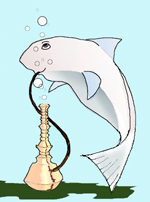To be successful playing poker, you don't need what is commonly referred to as a "Poker face," in fact that kind of demeanor can cut into your profits, while still giving away "tells"
While tells have their place at the poker table, they are far down the list of skills you have to master. The most important is to play the game was as few ‘leaks' in your game as possible. Even if you are a stoic as Mr. Spock and have the countenance of a face engraved on Mount Rushmore, if you play poorly, reading your opponents will not make you a winner. At best it will limit your losses.
After you have learned to play well, use proper card selection and the tools of the trade, such as the semi-bluff, then you can expand your repertoire to watching your opponents for tells.
The most important question is what limits are you playing? Tells are most valuable in no limit or high limit games. If you are playing at limits lower than 10-20 most of your opponents are playing for fun. They are concentrating on their own cards and rarely if ever thinking about what you may be holding. You can use this to pick up tells on your opponents while not having to worry much about your own give a ways.
At these limits you will win more by engaging with your opponents, making the game fun for all. While everybody else, along with you, are laughing it up, they are not paying attention to the game and are apt to make more mistakes. Not you, because you can walk and chew gum at the same time. While you are laughing on the outside, your mind is focused on the game. That allows you to play better than your opposition as well as taking advantage of there tells. Tells they probably don't even know they have. This loose passive game is probably the most profitable for the good player. While the others are playing to have fun, you are playing to win money, and you will.
If you put on your "Mt. Rushmore" face and look like you are taking the gamer seriously, your opponents will notice and start paying attention to their game. You don't want that. You want their money so lighten up and let everybody have fun while giving you their money. Conversely, if you see a table with all the players looking grim and serious, run, don't walk away as fast as you can. There is no profit there.
The key too not giving anything away about your hand is to play every hand the same physically. When you bet, raise or fold always use the same motion. It's a good idea, when it's your turn to act, count to three before doing anything. They keep the observant player from picking up betting or physical patterns he can use against you later.
When the cards are dealt, never look at your own cards until its time for you to act. That keeps you from accidently giving away information about your hands. Instead watch the other players, especially those who will act after you. Many players will immediately look at their cards and indicate what they are going to do, Say you are in middle position in a Hold-em game and notice the players behind you look disgusted with their hands indicating they are going to fold. No one or just one player has entered the pot when it comes your turn and you have a mediocre hand, say a pair of sevens or QJs. Knowing those behind you are not interested in the hand you can raise, driving them out and either winning the pot immediately or isolate one opponent with position on him. Since most of the time both of your will miss the flop and you can steal it with a bet.
As you climb the latter to higher limits, tells become more important. At low level you need to know what you have and a good idea what your opponent has. At higher limits you thinking has be become more sophisticated. In addition to knowing your cards and having a good read on your opponent, you have to fathom what your opponent thinks you have, how he will react to your moves as well as how he may counter them. Like in Chess you have to look as far into the future as possible. This is when tells become really valuable, harder to find, and less likely to be accurate. A good player can play a hand while giving a subtle tell. You pick up on it and call his bluff winning the pot this time. Later in a big confrontation that player may exhibit the same tell, you think he is bluffing and call only to find he has the nuts. You have become a victim of a reverse tell. This is when experience playing with the same players come in handy. If you know your opponent is tricky, you may avoid his trap. In no-limit this will save you a lot of money.
While there is no way to learn about tells without a lot of playing experience, you can get a head start by studying a good book or video that shows common tells. Mike Caro's "Book of Tells" is a good starting point.
Saturday, May 12, 2007
The Successful Poker Player
Labels:
Book of tells,
Hold em,
Mike Caro,
Poker,
Poker face,
Successful Poker Player,
Tells
Subscribe to:
Post Comments (Atom)

No comments:
Post a Comment